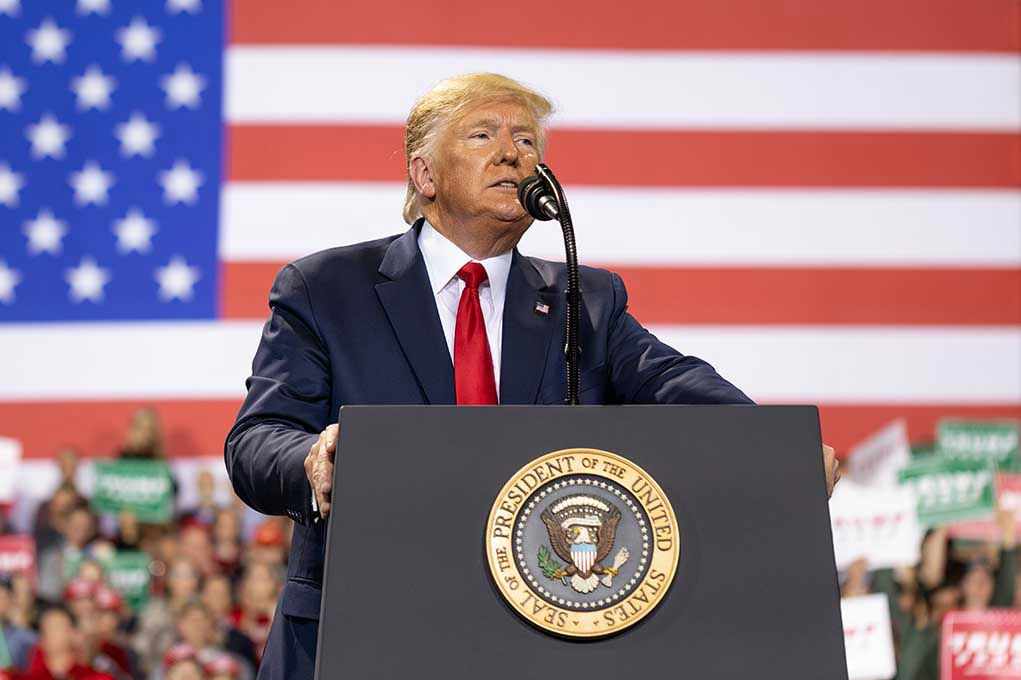
The loosely organized movement that spent years hiding behind masks and ideological cover just handed Trump the perfect justification for his most controversial domestic security decision.
Story Highlights
- Trump formally designated Antifa as a domestic terrorist organization through executive order in September 2025
- House Resolution 26 calls for DOJ prosecution of Antifa-related crimes following recent violent incidents
- The decentralized nature of Antifa complicates enforcement but legal precedent is now established
- Civil liberties advocates warn of potential overreach while supporters cite public safety concerns
The Formal Designation That Changed Everything
President Trump signed Executive Order 14110, formally designating Antifa as a domestic terrorist organization. This wasn’t merely political theater or campaign rhetoric. The order established legal framework allowing federal agencies to pursue enhanced prosecution and monitoring of individuals affiliated with the anti-fascist movement. The designation represents the first time a decentralized American political movement has received such classification.
The executive action followed months of legislative groundwork. Representative Marjorie Taylor Greene introduced House Resolution 26 in January 2025, explicitly calling for Antifa’s terrorist designation and urging the Department of Justice to prosecute related crimes. Unlike previous symbolic resolutions, this measure carried the weight of unified Republican control and a mandate for action.
Why the Timing Matters Now
The 2025 designation differs fundamentally from Trump’s earlier statements about Antifa during his first presidency. Between 2020 and 2024, Trump repeatedly called for such action but lacked the legal mechanism and political capital to implement it. The intervening years provided a catalog of incidents attributed to Antifa-affiliated individuals, creating a documented pattern of violence and property destruction that supporters argue justifies the terrorist label.
Legal scholars note that domestic terrorist designations traditionally face constitutional hurdles that foreign terrorist organizations do not. However, the 2025 approach focuses on specific criminal conduct rather than ideological opposition, potentially strengthening the legal foundation. The Department of Justice has begun developing enforcement protocols that target actions, not beliefs, though critics question where that line will be drawn in practice.
The Enforcement Challenge
Antifa’s deliberately decentralized structure presents unique enforcement complications. Unlike traditional terrorist organizations with hierarchical leadership and formal membership, Antifa operates as a loose network of autonomous cells and individual actors. This makes prosecution more difficult but not impossible, according to federal law enforcement officials briefing Congress on implementation strategies.
The designation empowers federal agencies to apply enhanced surveillance and investigation tools previously reserved for foreign threats. Financial institutions must now report suspicious transactions potentially linked to Antifa activities. Social media platforms face pressure to monitor and report content that could facilitate domestic terrorism. These measures represent a significant expansion of domestic security apparatus that has civil liberties organizations deeply concerned.
The Constitutional Collision Course
First Amendment advocates argue the designation threatens legitimate protest and dissent by creating a chilling effect on anti-fascist activism generally. They point out that much of what Antifa claims as its mission – opposing white nationalism and far-right extremism – constitutes protected political speech. The challenge lies in distinguishing between lawful opposition and criminal conduct when both occur under the same ideological banner.
However, supporters of the designation argue that recent Antifa actions have crossed clear lines from protest into terrorism. Property destruction, violence against civilians, and organized disruption of lawful activities provide concrete criminal predicate for the terrorist label. They contend that hiding criminal behavior behind political ideology doesn’t grant immunity from prosecution, and the designation simply provides appropriate tools for law enforcement response.
Sources:
H.Res.26 – Calling for the designation of Antifa as a domestic terrorist organization
Trump’s Terrorism Designation of Antifa: Meaningless or Serious Threat?
Executive Order on Countering Domestic Terrorism and Organized Political Violence
S.Res.279 – A resolution calling for the designation of Antifa as a domestic terrorist organization




